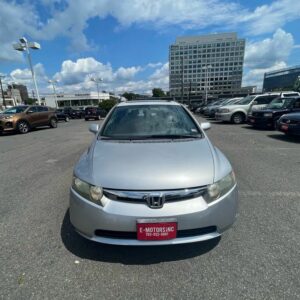American Home Shield: Unlocking the Mystery of a Non-Freezing Freezer

The freezer, a cornerstone of modern kitchens, is tasked with preserving our food and keeping it at a frigid temperature. However, there are times when it fails to live up to its freezing reputation, leaving us baffled and frustrated. In this article, we dive into the world of non-freezing freezers and explore the top 5 reasons why your freezer might not be freezing as it should.
1. Temperature Setting Woes

=>Click Here Now- Temperature Setting Woes
Before you delve into more complex issues, always check the basics first. Your freezer’s temperature setting might be too high or too low, affecting its ability to maintain a freezing temperature. Ensure that the thermostat is set to the recommended temperature, usually around 0°F (-18°C), and give it some time to stabilize.
2. Poor Air Circulation

=>Click Here Now- Poor Air Circulation Home Replacement Policy
Freezers require proper air circulation to evenly distribute the cold air. If you’ve overloaded the freezer with items, especially those blocking the air vents, it can disrupt the airflow and result in uneven cooling. Organize the contents to allow for proper circulation and avoid overloading the freezer.
3. Faulty Door Seal
The door seal, also known as the gasket, is responsible for creating an airtight seal when the freezer is closed. If it’s damaged, warped, or simply not sealing properly, warm air from the surroundings can seep in, causing the temperature inside the freezer to rise. Check the seal for any visible defects and ensure it’s clean and free from debris that might prevent a proper seal.
4. Defective Thermostat
The thermostat is the control center of your freezer, regulating when to cool and when to stop. If it’s malfunctioning, it might not be sending the right signals to the cooling system, leading to temperature irregularities. If you suspect a faulty thermostat, it’s best to consult a professional technician for diagnosis and repair.
5. Inadequate Refrigerant
The refrigerant is the cooling agent that enables the freezer to maintain low temperatures. If there’s a leak in the refrigerant system, your freezer’s cooling efficiency can be compromised. Signs of a refrigerant issue include longer-than-usual cooling times and higher temperatures inside the freezer. This is a complex issue that requires professional attention to identify and fix.
In conclusion, a non-freezing freezer can be caused by a variety of factors, ranging from simple temperature settings to more complex issues like refrigerant leaks. By addressing these potential culprits, you can troubleshoot the problem and restore your freezer to its freezing glory.
When to Upgrade Your Appliances: Making the Right Choice

=>Click Here Now- Make the Right Choice Home Replacement Policy
Home appliances play a significant role in our daily lives, offering convenience and functionality. However, there comes a time when the question of upgrading or replacing them arises. In this article, we’ll explore the factors to consider when deciding whether it’s time to upgrade your appliances or not.
1. Age and Efficiency
One of the primary indicators that it’s time to consider an upgrade is the age of the appliance. As appliances age, their efficiency tends to decline. Newer models are designed with advanced technology that offers improved energy efficiency, which can lead to savings on utility bills over time.
2. Repairs and Maintenance
Frequent breakdowns and costly repairs can indicate that your appliance is nearing the end of its useful life. If you find yourself spending a significant amount on repairs, it might be more financially prudent to invest in a new appliance that comes with a warranty and reliable performance.
3. Technological Advancements
The world of home appliances is constantly evolving, with new models featuring advanced technology and innovative features. If your current appliance lacks the features you desire or if newer models offer enhanced convenience, upgrading might be a wise choice.
4. Lifestyle Changes
Changes in your lifestyle or household dynamics can also influence your decision to upgrade. For instance, if your family is growing, you might need a larger refrigerator or washing machine to accommodate increased usage.
5. Environmental Impact
Modern appliances are designed with a focus on environmental sustainability. Upgrading to energy-efficient models can significantly reduce your carbon footprint and contribute to a greener lifestyle.
Repair or Replace: Weighing Your Options

=>Click Here Now- Home Replacement Policy
The decision between repairing or replacing an old appliance is not always straightforward. It requires careful consideration of various factors to make an informed choice. In this article, we’ll explore the pros and cons of repairing versus replacing an old appliance, helping you make the best decision for your situation.
Pros of Repairing:
- Cost-Effective: In many cases, repairs can be more budget-friendly than purchasing a brand-new appliance.
- Familiarity: You’re already familiar with the appliance’s operation and features, reducing the learning curve.
- Immediate Solution: Repairs can be completed quickly, providing an immediate solution to your appliance issues.
Cons of Repairing:

=>Click Here Now- Cons of Repairing Home Replacement Policy
Frequency of Repairs: If your appliance frequently requires repairs, the costs can add up over time.
Risk of More Breakdowns: An old appliance might experience additional breakdowns shortly after a repair, leading to more expenses.
Outdated Technology: Repairing an old appliance might not address technological advancements or energy-efficient features.
Pros of Replacing:
- Improved Efficiency: Newer appliances often come with enhanced energy efficiency, leading to cost savings over time.
- Warranty: New appliances typically come with warranties that offer protection against breakdowns.
- Advanced Features: New models may offer advanced features and improved functionality.
Cons of Replacing:
- Higher Upfront Cost: The initial cost of purchasing a new appliance can be higher than repairing the existing one.
- Learning Curve: Adjusting to a new appliance’s features and operation might take some time.
- Environmental Impact: Replacing an appliance contributes to waste disposal and has an environmental impact.
In conclusion, the decision to upgrade, repair, or replace an old appliance depends on a variety of factors, including the appliance’s age, efficiency, cost of repairs, and your preferences. By carefully considering these factors, you can make an informed choice that aligns with your needs and budget








